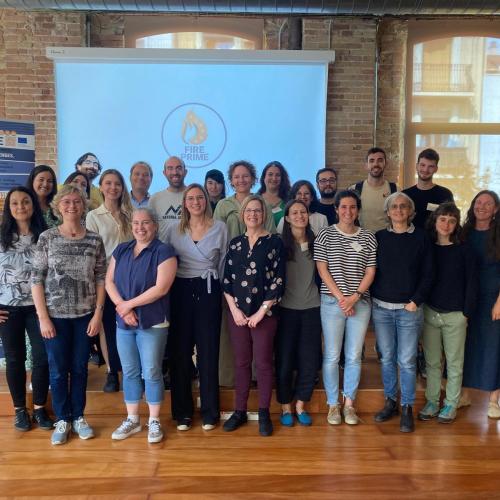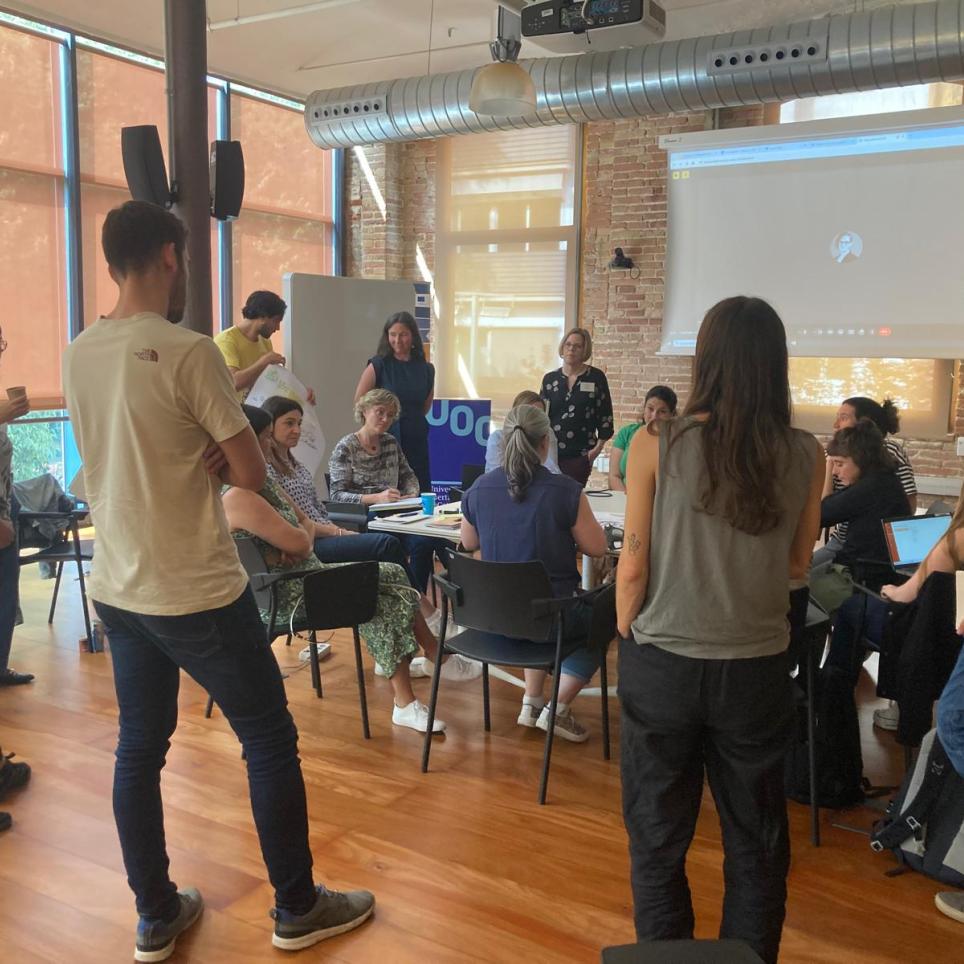
Firprime’s partners and invited stakeholders gathered for the workshop "Sketching Fireprime - Addressing the Needs, Challenges, and Solutions for EU WUI Communities," on May 28-29 at the UOC premises (Can Jaumandreu) in Barcelona. The workshop was aimed to learn from similar international projects related to wildfire-prepared communities and to share Fireprime's objectives, developments, and activities to receive feedback from the attendees." Fireprime is a DG-ECHO-funded project.
The workshop provided an open space for presentations, discussions, and teamwork to exchange knowledge and experiences, allowing contributions from key actors to help build Fireprime's implementation strategy. These key actors included representatives from successful similar projects such as Firewise (USA), FireSmart (Canada), and Aldeia Segura, Pessoas Seguras (Portugal); emergency services professionals; researchers; and members from Fireprime's partner institutions. Members of the project’s Advisory Board also attended the workshop. The event had 43 participants, five of whom participated in the workshop online.
The workshop’s agenda included presentations from the Firewise, SmartFire, and Aldeia Segura projects, as well as an overview of Fireprime’s three main streams: homeowner safety, community engagement and education, and resilient landscapes. The tools and services to be developed and tested in the three case studies were also discussed, considering socioeconomic and cultural specificities: the Mediterranean case study in the province of Barcelona, specifically in the urbanizations of La Floresta (Sant Cugat) and Mas Sauró (Barcelona); the Austrian Tyrol (Central Europe); and the Gothenburg region (Northern Europe). Finally, there was a teamwork activity to discuss approaches, key actors, and challenges to ensure Fireprime’s governance, scalability, and sustainability.
Conclusions
Some conclusions were drawn to cover a comprehensive approach to implementing the FIREPRIME program, considering strategic planning, community participation, and education. In this respect:
FIREPRIME should enhance fire resilience in communities by empowering residents to make informed decisions about self-protection or evacuation in worst-case scenarios. Solutions must avoid giving a false sense of security and instead promote awareness and preparedness. Prioritizing vulnerable groups and considering the diversity of capacities within communities are crucial. Solutions should also link property safety to community safety, recognizing the interconnected nature of residents' well-being. Establishing communication networks among stakeholders, such as resident associations and safety officers, can encourage participation and enhance the program's success.
A support network of volunteers will be essential for scaling the program effectively. Implementing a review procedure for preventive actions, along with recognition and rewards for high-quality initiatives, can drive ongoing engagement. The program should also address local beliefs and attitudes, particularly where risk perception is low. Tools like home self-assessments with actionable recommendations and smartphone apps linked to certifications or insurance can further engage the community. Leveraging resources like the "Oil and Gas FIRESMART Guidebook" from Alberta, Canada, can provide additional guidance. Educating citizens on the importance of their actions helps foster a more informed and prepared community, ready to respond to fire risks effectively.

